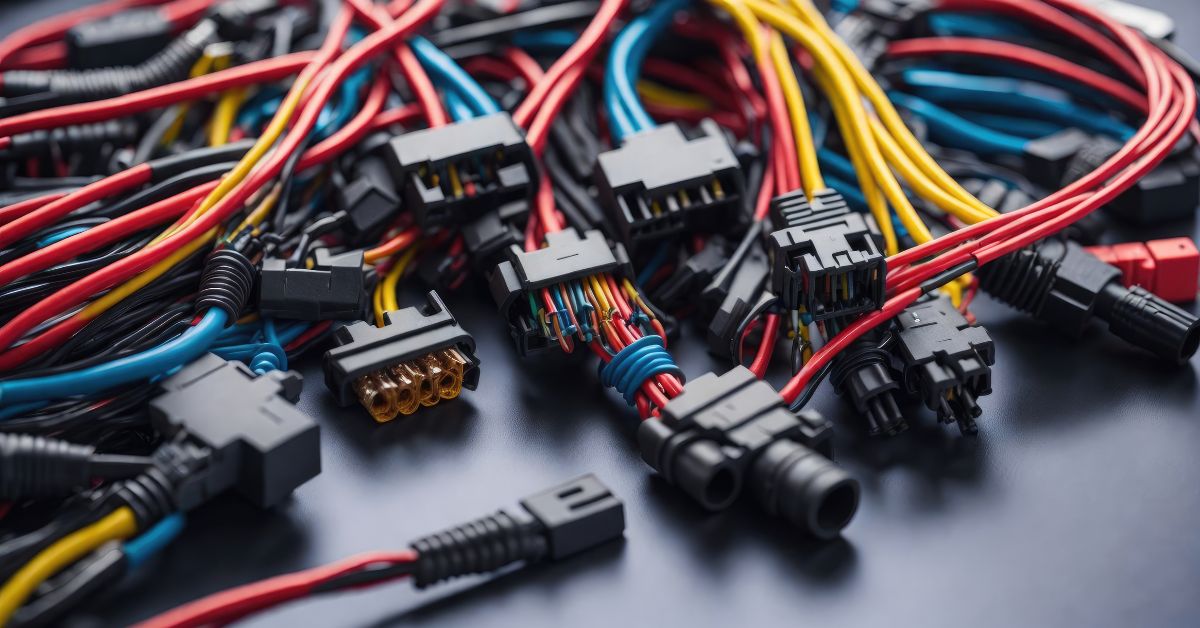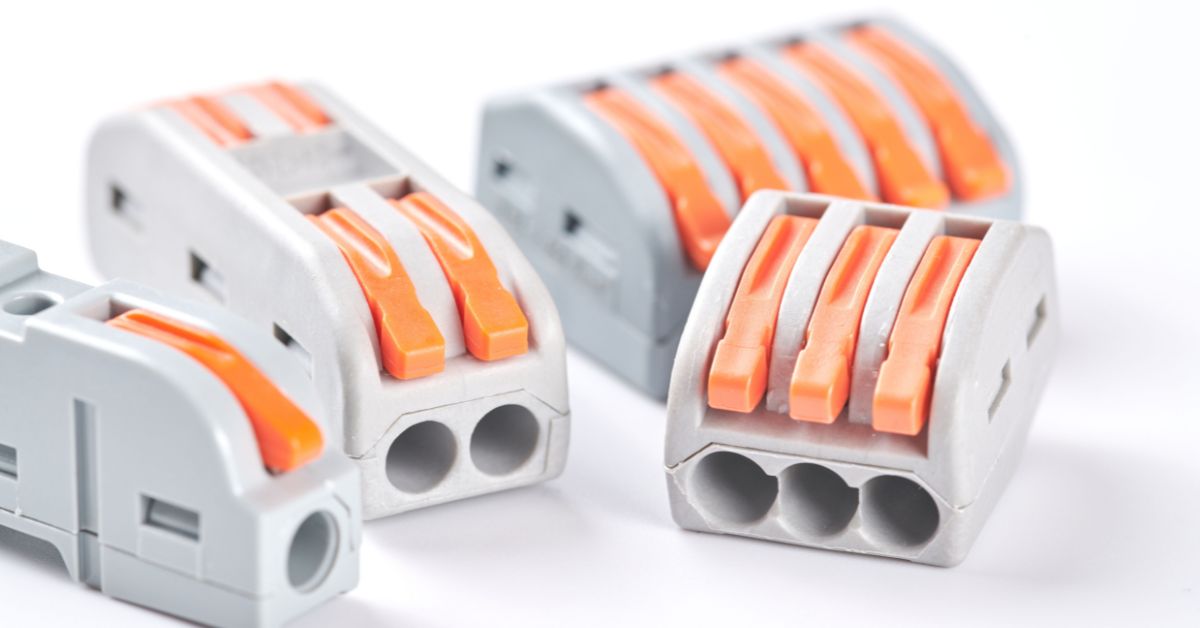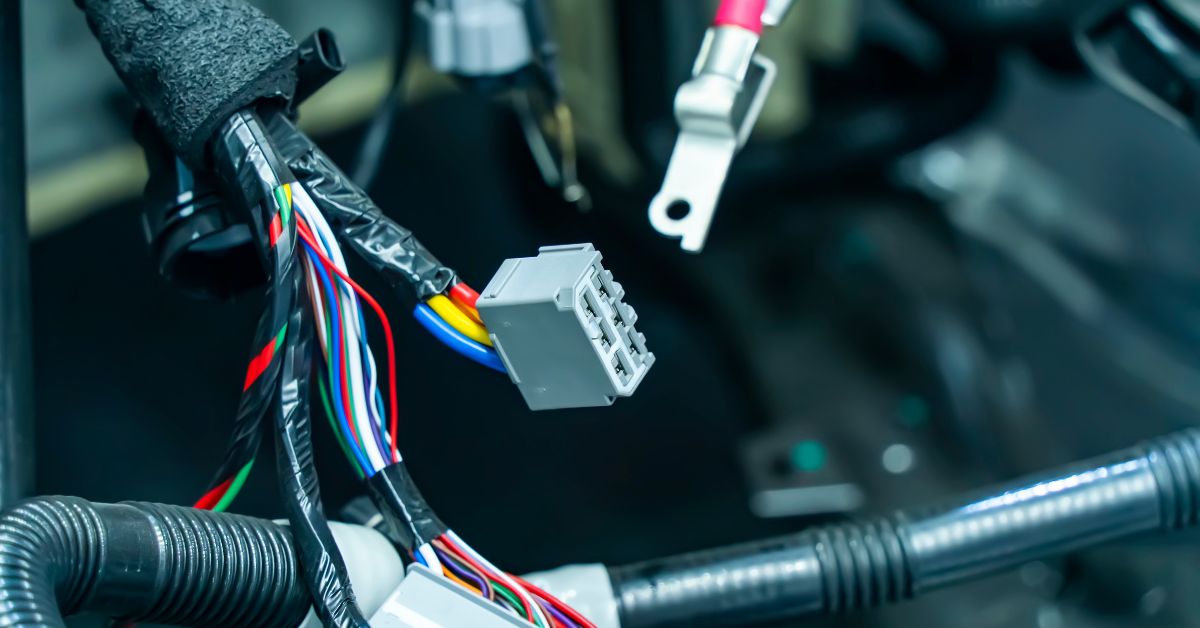What Are the Many Different Types of Automotive Connectors?
What Are the Many Different Types of Automotive Connectors?

Automotive connectors are crucial components in vehicles, as they allow different electronic components to communicate. These connectors come in various shapes, sizes, and configurations to cater to many electrical functionalities. We’ve detailed the different types of automotive connectors and provided tips for buying the appropriate one.
Types of Automotive Connectors
Vehicles rely on electrical power for various functions, such as connecting wires, sensors, switches, and modules. This is where automotive connectors come in—to join these components to the vehicle’s main electrical system.
The various automotive connectors have unique purposes. Some common types include the following:
- Pigtail connectors
- Terminal blocks
- Bullet connectors
- Scotch Locks
We’ll explain each of the common types of connectors below to help you learn about your options.
Pig Tail Connectors
Pigtail connectors, often called pin connectors, are wiring connectors that allow for the replacement or repair of just the end of a damaged cable. They can be particularly useful in automotive applications with localized wire damage and full wire replacement is unnecessary or impractical.
The number of pins in a connector directly correlates to the number of electrical wires that need to pass through it. When replacing a pigtail connector, always use one with the same number of pins as wires for the designated areas.
An Example
If you repair a car’s headlight and see that the vehicle uses a four-wire pigtail connector, you can only replace it with a pin connector that has the same number of pins. Each pin corresponds to a specific wire, so using the wrong connector could damage the electronics for the headlights.

Terminal Blocks
Terminal blocks involve multiple connections. They come in various sizes and types, including screw-type, spring clamp, and insulation-displacement connection (IDC). Terminal blocks offer versatility and the ability to accommodate multiple wires or cables without splicing.
Bullet Connectors
Known for their simplistic, cylindrical design, bullet connectors are common in low-to-medium-complexity electrical circuits. They’re named for their bullet-like shape, which allows for quick disconnection and connection, ideal for components that need regular servicing or replacement.
Automotive manufacturers often use bullet connectors in areas like the car’s stereo and audio system because they are easy to disconnect and reconnect during repairs or upgrades.
Scotch Locks
Some industry professionals refer to scotch locks as splice connectors. These automotive connectors allow you to join two wires without the need for stripping or soldering. They are perfect for quick repairs and connections, especially in areas where wire splicing may be challenging.
A Breakdown of Pin Connector Shapes
Pigtail connectors are among the most common types of automotive connectors and come in a range of shapes. To help you differentiate the many types, we’ll explain some of the most common:
Flat Connectors
Automotive manufacturers often use flat connectors in spaces with limited room due to other vehicle components. This design ensures the pin connector can attach to existing connectors without obstructing other parts.
Round Connectors
Round connectors are ideal in situations where the connector might be exposed to the elements or needs to rotate freely, such as in exterior lighting assemblies. Automotive components often rely on round connectors to work properly.
Square Connectors
Vehicles often contain square connectors for applications where multiple conductors or signals need to pass through a single connector, such as with engine sensors. Like many other connector shapes, they come in a range of sizes to accommodate varying numbers of wires.
Rectangular Connectors
Rectangular connectors are common for large, complex connections because their shape allows for more pins. You’ll often find these in control units and modules throughout the vehicle.

The Vehicle System Impacts the Necessary Connector Type
Because there are many different types of automotive connectors, it’s important to know that each vehicle system may require a different connector. Your audio systems may need a bullet connector, while exterior lighting relies on a square four-pin connector.
Some examples of vehicle systems and the connectors they typically use include the following:
Engine Management System
The engine management system in modern vehicles controls fuel injection, ignition timing, and emissions control. This complex system requires high-quality, durable connectors to support communication and function. It often uses rectangular or square connectors, depending on the complexity and number of wires involved.
Lighting System
Automotive lighting systems are essential for safe driving at night or in low-visibility conditions. They rely on various types of connectors, such as round and flat, to power components like headlights, taillights, and turn signals.
Audio and Entertainment Systems
With the ever-increasing number of in-car entertainment options, audio systems are crucial components in modern vehicles. These systems require specialized connectors to maintain sound quality while withstanding vibrations and temperature changes within a vehicle. Audio systems may use bullet connectors or rectangular connectors, depending on the vehicle’s make, model, and year.
Tips for Determining the Ideal Connector
Selecting the correct automotive connector involves more than matching shapes and pin counts. To determine the connector you need, review the type of vehicle, pin arrangement, and connector color.
Review Vehicle Type
As with most automotive parts, connectors are specific to vehicle type and year. Research the correct part for your particular make and model before purchasing. For example, a semi-truck requires a connector with more pins than a sedan; semi-trucks and trailers often need connectors with at least six to eight pins.
Examine Pin Arrangement
In some instances, connectors may have the same shape and number of pins but differ in their pin arrangement. Count and note the number of pins in your current connector to simplify your search.
Check Connector Color
Many manufacturers assign colors to their connectors for easy identification. If you’re unsure about the type of connector needed, checking its color can narrow the options.
Moreover, some pin connectors have color-coded terminals that align with the wires. If your connector has these color markings, find one with matching colored terminals.
Consult a Professional
When in doubt about what to buy, it’s always best to consult the connector manufacturer. They can help you determine the exact product you need. There are countless options for automotive connectors on the market, and for a car to work properly and safely, you need the right components. Automotive connector manufacturers specialize in these products and can identify the exact match for your vehicle.
Connector Experts
Connector Experts sells genuine automotive connectors that we assemble in-house. We’re always happy to help customers find the connector they need to complete their auto repair job. Buy our connectors today!

You must login to post comments.